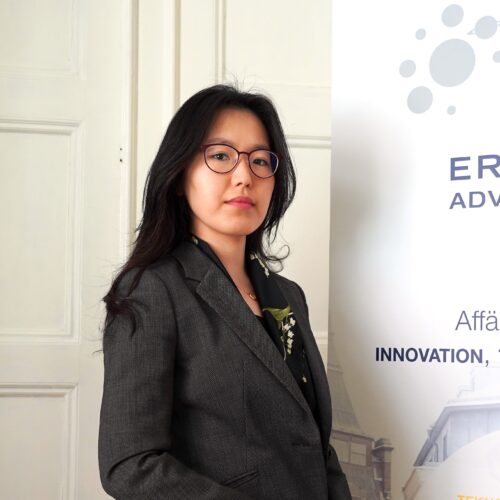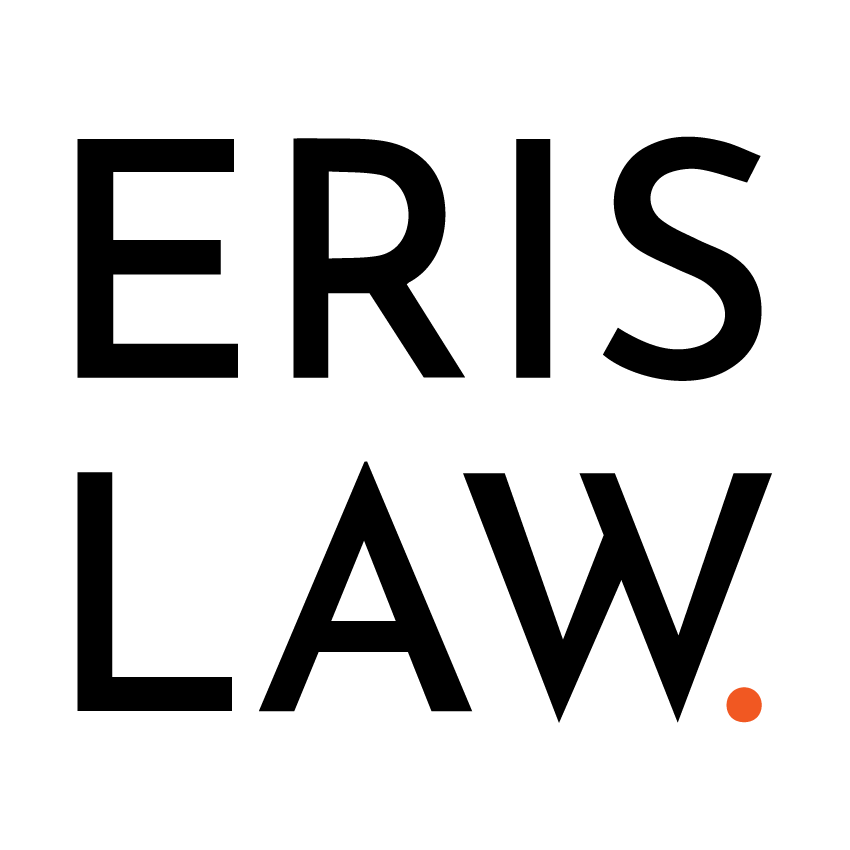What’s New at Eris Law Advokatbyrå AB
Eris Law Advokatbyra AB is pleased to announce that we will be attending Stockholm Fintech Week, on 11-12 February 2025 at Sergel Hub in Stockholm, Sweden.
How We Can Assist You:
- Authorization & Permit: Assisting with applications for permits and authorizations at the Swedish Financial Supervisory Authority (Finansinspektionen).
- Risk Assessment & Compliance: Supporting fintechs with risk assessments and compliance with Swedish rules, regulations, applicable provisions, and general guidelines from the Swedish Financial Supervisory Authority and the EU, including
DORA, PSD2, MiFID II, CRR, CRD, AML and KYC. - Privacy & Data Protection: Ensuring compliance with national and EU data protection laws.
- Intellectual Property: Protecting patents, trademarks, copyrights, and trade secrets, and setting IP strategies that encompass commercialization of IP assets. Eris Law is a registered agent at the European Union Intellectual Property Office (EUIPO).
- AI Governance: Supporting in compliance with laws and regulations on AI, risk management, AI system audits, and ethical considerations.
- Contract & Negotiations: Facilitating strategic collaborations, operational agreements, commercial agreements, and cooperation agreements for financial institutions and fintechs.
- Private Equity: Providing assistance in private equity investments, corporate governance, due diligence, and capital structure, including private offerings of equity, preferred and common, equity-linked, convertible debt and warrants.
- Dispute Resolution: Offering litigation, arbitration, and mediation services.
📲Connect With Us at the Event:
We would like to invite you to connect with us during Stockholm Fintech Week, to discuss how our legal expertise can benefit your business. You can book a meeting with us via the Deal Room Platform to discuss your specific legal needs and how we can support your objectives.
We are looking forward to meeting you at the event.

©Stockholm Fintech
Fintech
Rapid Growth and Strategic Location: Analysing the Rise of FinTechs in the EU: This article examines the significant expansion of the FinTech industry in the EU since 2016, highlighting the clustering of FinTech firms in major financial centers. It discusses the benefits FinTechs bring to the financial sector and the broader economy, including improved access to financial services and enhanced efficiency. Valuable insight is provided on how supportive policy efforts can impact the EU FinTech Industry.
2025 – Eight predictions for European Fintech: This article provides forward-looking insights into the European FinTech landscape, offering eight predictions for 2025. It covers topics such as the persistence of higher interest rates, the end of cheap money, and the emphasis on sustainable profitability. The piece also discusses the evolving regulatory environment and its implications for FinTech companies in Europe.
Sweden’s Open Payments Secures €3 Million to Expand B2B Open Banking Solutions: Swedish fintech company Open Payments has raised €3 million in a funding round led by Alfvén & Didrikson, with participation from Industrifonden and other investors. The company specializes in aggregating multiple bank APIs into a single platform, enabling businesses to streamline cross-border payments, account reconciliation, and cash management. This new funding will support Open Payments’ growth, product innovation, and the expansion of real-time payment capabilities.
GDPR
German Court Grants Injunction Against Meta for Unlawful Data Tracking: The Lübeck Regional Court ruled that Meta’s tracking via its Business Tools on third-party websites unlawfully processed personal data without user consent, violating GDPR. The court granted injunctive relief to the data subject but denied claims for non-material damages. It emphasized that Meta’s data collection practices infringe on informational self-determination, even if common in the digital landscape.
Romanian DPA Fines Softehnica S.R.L for Inadequate Data Security Measures: The Romanian Data Protection Authority (ANSPDCP) fined Softehnica S.R.L approximately €5,000 after a ransomware attack exposed personal data, including names, addresses, and contact details. The investigation revealed the company lacked sufficient technical and organizational security measures and failed to regularly test and assess the effectiveness of its data protection protocols. This breach violated Articles 32(2) and 32(3) of the GDPR concerning data security obligations.
Swedish DPA Reprimands Gambling Company for Invalid Cookie Consent Practices: The Swedish Authority for Privacy Protection (IMY) reprimanded Aktiebolaget Trav och Galopp for using misleading cookie banners that prioritized acceptance over refusal, violating GDPR Articles 6 and 7(3). The design made it significantly easier to accept cookies than to withdraw consent, undermining the principle of informed and freely given consent. Despite updates, the refusal option remained less visible, leading to regulatory action without the imposition of a fine.
Telecom
AST SpaceMobile Receives FCC Approval for Direct-to-Cell Space Services Test: AST SpaceMobile has secured temporary approval from the FCC to test direct-to-cell mobile broadband services, including voice and data, in partnership with AT&T and Verizon. This milestone allows the company to utilize its BlueBird satellites to trial services using standard smartphones on low-band spectrum, avoiding regulatory hurdles faced by competitors like Starlink. The tests mark a significant step toward AST’s goal of providing commercial mobile broadband directly from space.
Vodafone Achieves World’s First Space Video Call Using a Standard Smartphone: Vodafone has successfully conducted the world’s first video call via satellite using a regular smartphone, without the need for specialized equipment. The call was made from a remote area in Wales with no traditional mobile coverage, leveraging AST SpaceMobile’s BlueBird satellites to connect directly to Vodafone’s terrestrial network. This breakthrough aims to enhance connectivity in remote regions across Europe, with commercial rollout planned for later in 2025 and 2026.
Ericsson’s Fourth-Quarter Profit Rises Amid North American Growth and Potential U.S. Tariffs: In the fourth quarter, Ericsson reported a 43% increase in profit, reaching 4.9 billion Swedish kronor, driven by a 54% surge in North American sales due to significant contracts with major telecom operators. Despite this growth, the company’s enterprise division faced challenges, contributing to a profit that fell short of analyst expectations. Additionally, Ericsson expressed concerns about potential U.S. tariffs on European imports, which could negatively impact its global supply chain and product development.
AI
Three Swedish university hospitals are developing their practical AI capabilities in collaboration with Canada: Three major Swedish university hospitals—Karolinska, Skåne, and Sahlgrenska—are collaborating with Canada’s Unity Health Toronto to enhance their AI capabilities in healthcare. Funded by Vinnova and led by AI Sweden, the project focuses on AI leadership, data collaboration, and developing an AI tool to predict missed patient appointments. The initiative aims to strengthen international cooperation, exchange expertise, and advance AI-driven healthcare solutions.
Nordic Council of Ministers Gives Green Light to Funding for Nordic AI Center: The Nordic Council of Ministers has committed five million Danish kroner annually (2025–2027) to establish a Nordic AI Center, led by AI Sweden, to boost AI adoption and investment in the region. The initiative, developed with AI Finland and IKT-Norge, aims to enhance Nordic and Baltic influence in AI, particularly within the EU. AI Sweden is now preparing a financing proposal before the council makes a formal funding decision.
AI adoption in the public sector: a new study on key influencing factors and two frameworks for competencies and governance: Two Joint Research Centre studies examine key factors influencing AI adoption in the public sector, highlighting leadership, organizational culture, and citizen needs as key drivers. One study provides three policy recommendations, including strengthening AI expertise and aligning digital strategies with public needs. The second study introduces competency and governance frameworks to guide AI implementation, offering 18 actions for effective adoption across Europe.
Cybersecurity
Urgent Need for Enhanced Cyber Security in Public Administration: Six out of ten public administration organizations in Sweden lack fundamental cyber security measures, highlighting significant vulnerabilities, according to the Cyber Security Check 2024 by MSB. The report stresses the urgent need for increased management commitment, funding, and systematic security improvements, as only 8 out of 120 participating authorities met MSB’s regulatory requirements. To accelerate progress, MSB is tightening recommendations, urging businesses to participate, and offering advisory services, training, and seminars to strengthen national cyber resilience.
Adversarial Misuse of Generative AI: A Real-World Analysis: Google’s Threat Intelligence Group (GTIG) analyzed real-world attempts by government-backed threat actors and information operations actors to misuse Gemini, Google’s AI-powered assistant. The report found that while these actors are experimenting with Gemini for tasks like research, coding, and content creation, they have not yet developed novel AI-enabled attack techniques and their basic attempts to bypass Gemini’s safety controls have been unsuccessful. Iranian actors were the most active in attempting to misuse Gemini, followed by Chinese and North Korean groups, with limited activity observed from Russian actors.
Strengthening Internet Routing: NIST Updates BGP Security Guidance: NIST has released a draft update to its guidance on Border Gateway Protocol (BGP) security and resilience, addressing increasing internet routing incidents like hijacking and leaks that threaten data security and critical infrastructure. The draft publication, SP 800-189 Revision 1, recommends technologies like Resource Public Key Infrastructure (RPKI) and source address validation to bolster BGP security and mitigate DDoS attacks. This guidance is crucial for organizations, especially hosting and internet service providers, to protect against communication compromises, denial of service, and operational disruptions.
Upcoming Events
- British legal technology 2025
Dates: 11 March, 2025 (In-Person)
Time: 9 am onwards
Location: London, England
Registration: https://www.britishlegalitforum.com/
- We Developers World Congress 2025
Dates: 9-11 July, 2025 (In-Person)
Time: 9 am onwards
Location: Berlin, Germany
Registration: www.wearedevelopers.com
- Legal innovation event
Dates: June 16-17, 2025 (In-Person)
Time: 9 am onwards
Location: Amsterdam, Netherlands
Registration: https://lexpo.com/
Meet The Team

Katarina Bohm Hallkvist
Editor-in-Chief

Andres Alma
Reporteur

Reet Singh
Reporteur

Ariunzaya Munkhbat
Reporteur

